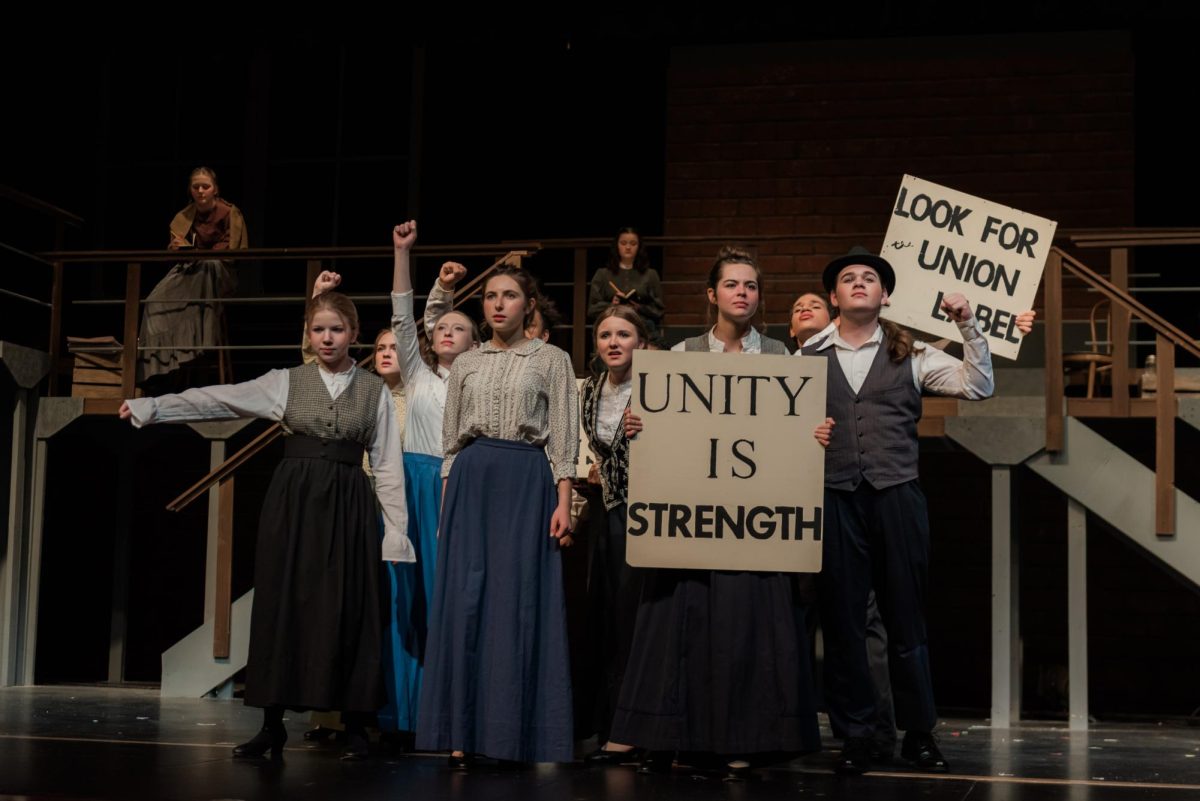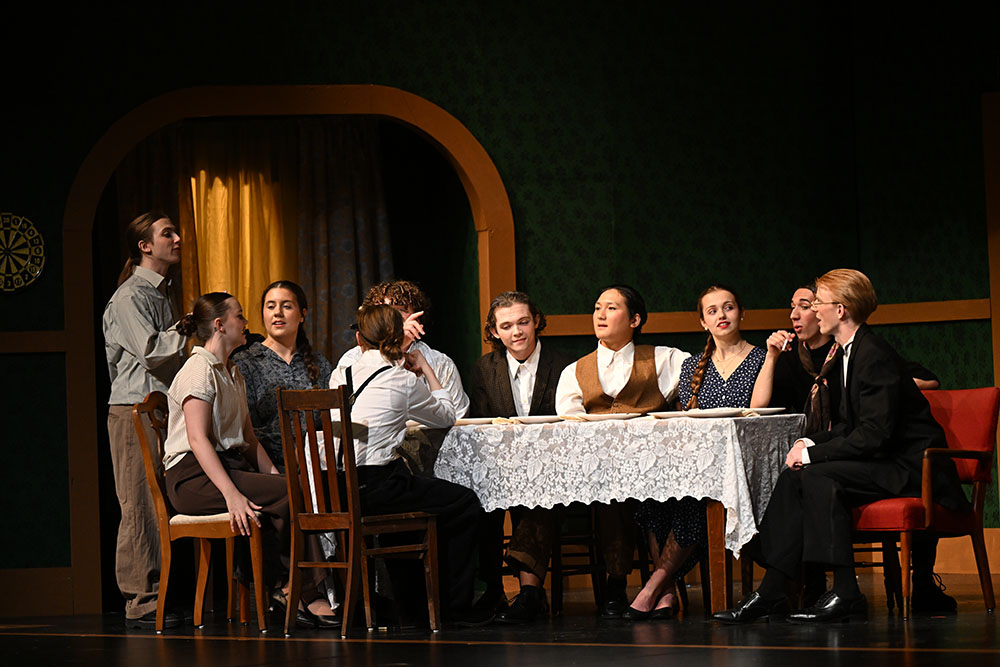Burning clothes, scorched hair, smoke-filled halls and young women on fire were the real-life scenes that the cast of “The Triangle Factory Fire Project” was able to gracefully portray on an almost barren stage for LSE’s first performance of the ‘23-’24 school year.
This play tells the story of the Triangle Shirtwaist Factory Fire of 1911, which was a pivotal moment for labor unions in the United States. Throughout the play, the audience learns that the fire claimed the lives of 500 immigrant works from countries like Poland, Russia, Italy and Ukraine. These workers, who were mostly women, worked gruelng 14-hour days making clothes.
In the first act, the audience is introduced to the main characters, including the lead, Margaret Schwartz (played by Bella McCown). Margaret is an earnest young woman who has immigrated from Hungary to New York and works at the Triangle Shirtwaist Factory with her brother Max Schwartz (played by DaZayah Hartshorn-Harvey) and friends.
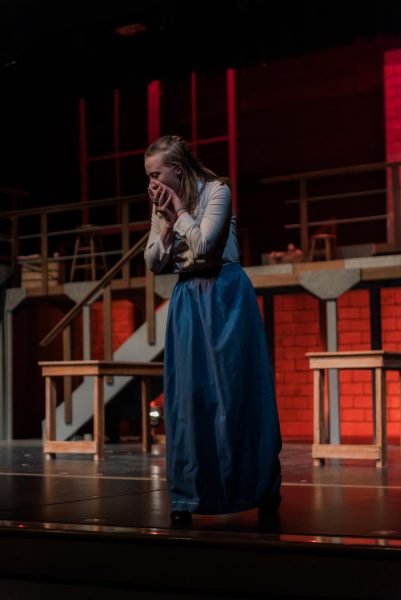
After establishing these characters and the setting, the play jumps right into the building catching fire. While some of the workers make it out alive, Margaret does not because the exit was locked.
The second act then displays the court case against the factory owners for the unsafe working conditions, which would have been long and frustrating for everyone involved; especially loved ones of the fire victims.
The student’s performances in “The Triangle Factory Fire Project” were the shining star of the production. Everyone was able to convincingly convey the emotional weight of the incident very clearly.
Some standouts were Aolani Wilson as Rose Freedman, Olivia Nelson as May Levantini, and Tristan McGill as Abe Gordon and Max Steur.
Wilson, out of everyone, was best at convincing just how young and innocent the women were. When Rose is begging for help, the audience was captivated and felt the wakeup call to fight for justice for the victims; teenage girls just like your sister, daughter, or friend.
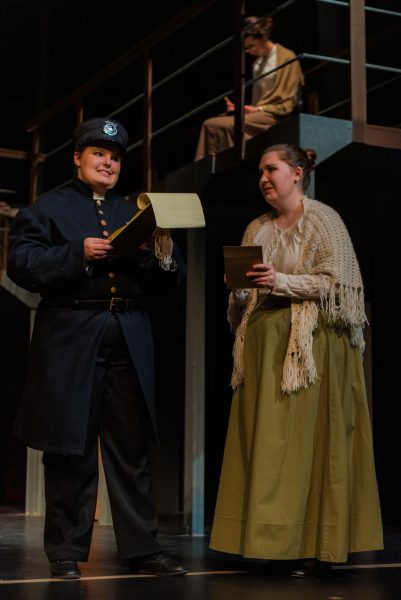
Nelson was able to create a similar effect, but her character highlights the trauma and grief that was experienced by those who survived the fire. From watching her friend burn alive, to mourning while in court and being bombarded with merciless demands by the opposing lawyer, it’s all completely convincing from start to finish.
Lastly, McGill plays a brave man who stepped up to try and help the others get out, but ended up a victim. Then he fully flips in the second act to the cold and insensitive lawyer that defends the factory owners. McGill was able to portray characters on both ends of the moral spectrum in just one play, which was impressive to watch.
Other fantastic elements of “The Triangle Factory Fire Project” were the tastefully minimalist set and props, lighting, costumes and pacing.
Needless to say, the LSE theater department has done it again with another great show.
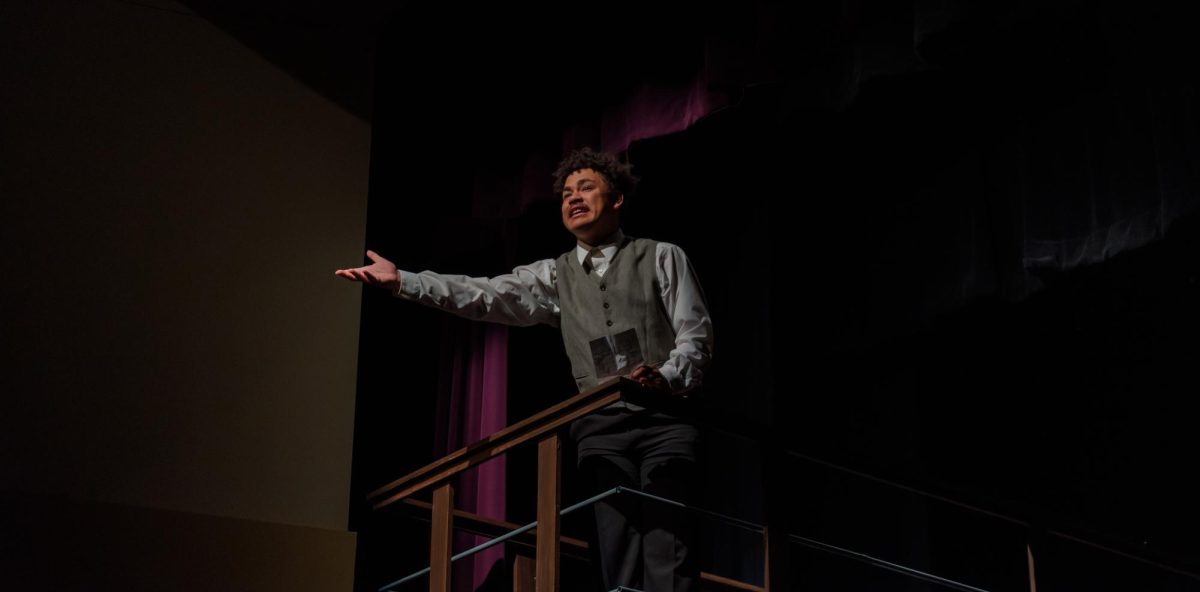
If you enjoyed the “Triangle Factory Fire Project”, you might be interested in coming to the winter musical, “Elf Jr.”, on Dec. 1, 2, and 3, where the Southeast theater members will take the audience on an unforgettable journey with Buddy the Elf and his friends. Tickets for this performance can be purchased at the box office before the pay, or bought online ahead of time.
Upcoming play: “Elf Jr.”
Auditions: October 17, and 18.
Dates of play: December 1, 2, and 3.

